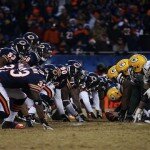For nearly seven months, everything the New York Rangers did worked.
Playing a defensive-first style, the Rangers baffled teams inside their own blue-line, getting every player, regardless of skill-sets, to get down and block shots and keep quality scoring chances away from goalie Henrik Lundqvist.
And for a long time, it garnered serious success. The Rangers defensive unit became quickly regarded as one of the best in the entire NHL, and New York sprung to the top of the Eastern Conference because of it.
As the saying goes, after all, defense wins championships.
But as the first-seeded Rangers entered the playoffs, it appeared as if the grimacing system they played — which forced them to play in their own zone for the majority of every game — had finally caught up with them.
In the early rounds, the Ottawa Senators and Washington Capitals seemed to be able, at times, to penetrate New York’s defense in ways that no one could in the regular season.
In the regular season, the Rangers allowed 2.22 goals-per-game, which was the third lowest in the league, behind the St. Louis Blues and Los Angeles Kings.
Likewise, their shots-against-per-game, at 27.8, ranked in the top-10 in the NHL, as well.
In the post-season, those numbers got even better. They had an identical number for shots-against-per-game at 27.8, but their goals-allowed-per-game dropped to 2.15.
Still, there was a difference in their play.
As their opponents knew, the longer the Rangers had to play, the better chance there would be that they would finally break. It would only be a matter of time, people assumed, that playing in their own zone for so long would finally beat them.
The Senators almost did it. The Capitals came even closer.
And in the Eastern Conference Finals, the New Jersey Devils finally did.
Playing in 14 playoff games before that series appeared to leave the Rangers tired, but don’t tell that to head coach John Tortorella. After every loss in that series — including the season-ending game six overtime loss — Tortorella insisted his team wasn’t tired.
For the first time all season, the Rangers defense finally seemed to stop their offense. When they finally got out of their own end, it appeared that they nothing left in their legs to put together any offensive magic.
Now, combine the toughest forecheck they had seen to date, and it all adds up to a fatigued team.
Even later in that series, when New York went down, it looked as if they unraveled. After forward Marian Gaborik missed a blocked shot in game five that turned into a Devils goal, he was benched for the first half of the third period by Tortorella.
So, given the fact that their system didn’t give the Rangers enough to win a Stanley Cup in 2011-2012, it remains up in the air if they will keep it moving forward.
Based on Tortorella’s comments all season, it doesn’t appear as if they will be jumping ship on anything they did last season.
As it is every year, adjustments will need to be made in New York. For starters, Tortorella will have to teach the system to newly-acquired star forward Rick Nash. Nash is known for his offensive talents and has never been on a team that has focused on defense as much as the Rangers, so it will be interesting to see how he plays there.
Next, the Rangers will have to look deep in the mirror to see what they can do to make sure their defensemen can last an entire season — and playoffs — without getting fatigued the way they did last year. Whether that means they should make small revisions to their system and not play such a rigorous defense style remains unknown. Only time can tell that.
When the 2012-2013 season finally begins, there will be several unknowns around the Rangers. None will be more compelling than to see how, or what, they will change from a year ago.
No person involved with that team wants to relive the look of every Rangers player lying gassed on the ice watching Devils’ forward Adam Henrique celebrate the goal that ended there season again. That much is known.


















